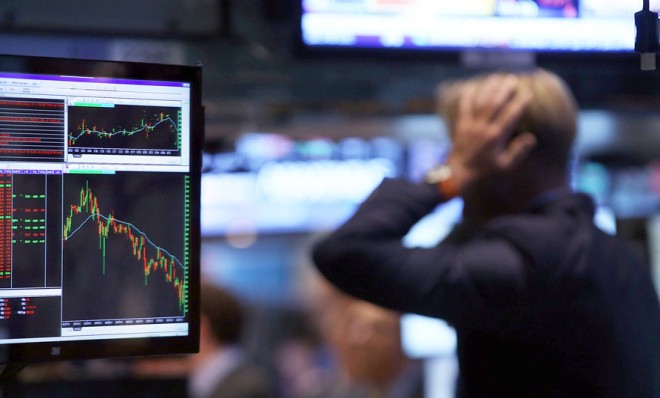3 reasons markets should expect a September to remember
Is a perfect storm brewing for the economy?

A free daily email with the biggest news stories of the day – and the best features from TheWeek.com
You are now subscribed
Your newsletter sign-up was successful
In the U.S., the GDP is growing (slowly), the labor market is adding jobs (barely), and consumer confidence is returning (in some sectors). But as the summer melts into fall, the still-precarious recovery faces three big challenges, at home and from abroad, that could knock it off course.
The brewing debt ceiling battle
Here we go again. Earlier this week, Treasury Secretary Jack Lew said the U.S. will reach its borrowing limit in mid-October, after which it will not be able to pay its obligations unless Congress agrees to raise the $16.7 trillion debt ceiling.
The Week
Escape your echo chamber. Get the facts behind the news, plus analysis from multiple perspectives.

Sign up for The Week's Free Newsletters
From our morning news briefing to a weekly Good News Newsletter, get the best of The Week delivered directly to your inbox.
From our morning news briefing to a weekly Good News Newsletter, get the best of The Week delivered directly to your inbox.
This spells big trouble for the economy. In 2011, a similar debt ceiling deadline caused months of political brinksmanship, which fanned fears that the U.S. would default on its loans, and eventually prompted Standard & Poor's to take the unprecedented step of downgrading the country's credit rating. The move spooked markets, hammered consumer confidence, and, according to many economists, dragged down the economy at a crucial point in the recovery.
This time around may be even more dangerous. Though President Obama and Lew have promised they won't negotiate over the debt ceiling, House Republicans have already threatened to use it as leverage to delay the implementation of ObamaCare. Furthermore, Republicans may use the debt ceiling to extract concessions from Obama in a separate battle to fund the federal government.
"Republicans will want to use the debt ceiling vote to gain leverage in talks on the 2014 budget and the next phase of automatic spending cuts known as sequestration," says Peter Coy at Bloomberg Businessweek.
Unsurprisingly, House Speaker John Boehner (R-Ohio) has promised "a whale of a fight."
A free daily email with the biggest news stories of the day – and the best features from TheWeek.com
"Tapering"
Some analysts expect the Federal Reserve to announce the first phase of unwinding its quantitative easing policies — which sends easy money into the economy to anchor interest rates and stimulate growth — as early as the Fed's next policy-making meeting on September 17-18.
Markets have grown addicted to the Fed's largesse, so even talk of tapering (the word the Fed uses to describe the phasing-out process) has caused markets to freak, and interest rates to rise. Since May, when Fed Chairman Ben Bernanke first brought up the possibility, the yield on the 10-year Treasury has risen to 2.75 percent, from 1.70 percent.
Emerging markets, meanwhile, have found themselves caught in the storm. Because low interest rates at home encouraged investor dollars to flow to high-yield bonds in emerging markets, rumors of tapering have caused the money to flow back in the other direction, while stoking inflation and helping drive down currencies. The Indian rupee, for example, has gone kerplunk.
But tapering isn't a lock, say analysts. "If the debt ceiling debate heats up to the point that it is seen by the Fed as creating the kind of uncertainty that dampens consumer confidence, and you see the price of oil escalate, further eroding confidence and consumer spending power, the Fed could announce a considerably smaller scaling back than initially planned," Quincy Krosby, market strategist at Prudential Financial, told Reuters.
The conflict in Syria
Which brings us to Syria. This week, Washington signaled that it will likely lead a military strike against Syrian President Bashar al-Assad's regime, a prospect that is deepening investor insecurity, especially in emerging markets. Making matters worse, oil futures for October have risen 2 percent, and if gas prices rise that could hurt consumer spending in the U.S., which accounts for two-thirds of GDP.
David Reilly at The Wall Street Journal sees a silver lining, at least for the U.S.: "Despite the continuing upheaval in Syria, which has driven oil higher, gasoline prices haven't soared… A serious rise in gas prices on the back of a crisis-induced oil spike, meanwhile, could prompt the government to release strategic oil reserves. That would likely help keep any increase in check."
Carmel Lobello is the business editor at TheWeek.com. Previously, she was an editor at DeathandTaxesMag.com.